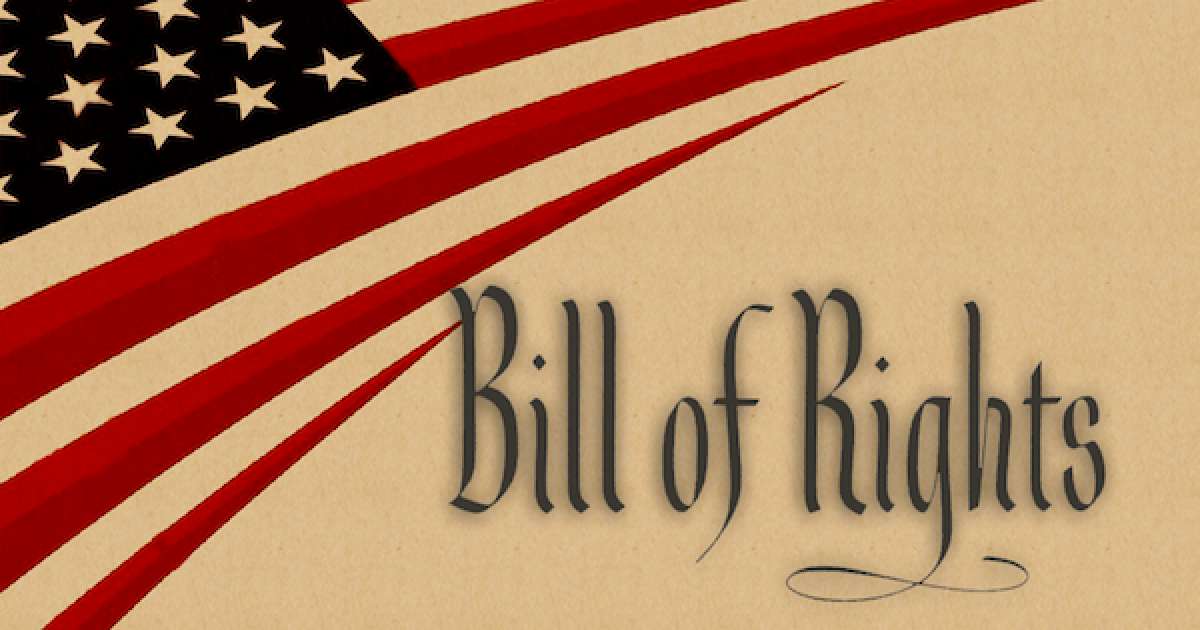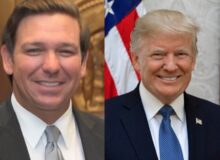Three-fifths to two-thirds of the federal budget consists of taking property from one American and giving it to another. Were a private person to do the same thing, we’d call it theft. When government does it, we euphemistically call it ‘income redistribution,’ but that’s exactly what thieves do—redistribute income. Income redistribution not only betrays the founders’ vision, it’s a sin in the eyes of God.” —Walter E. Williams
“The state of nature has a law of nature to govern it, which obliges every one: and reason, which is that law, teaches all mankind, who will but consult it, that being all equal and independent, no one ought to harm another in his life, health, liberty, or possessions . . . [and] when his own preservation comes not in competition, ought he, as much as he can, to preserve the rest of mankind, and may not, unless it be to do justice on an offender, take away, or impair the life, or what tends to the preservation of the life, the liberty, health, limb, or goods of another.” —John Locke, in The Second Treatise on Civil Government
Jefferson’s Dilemma: There Is No Freedom Without Property Rights
Although Founder Thomas Jefferson wrote, in the Declaration of Independence, “that all men are created equal,” he would not succeed as governor of Virginia in his goal of freeing the slaves. However, in 1778, his leadership efforts did succeed before his assumption of the governor’s office, in banning the importation of slaves into his home state, making Virginia one of the first jurisdictions worldwide to ban the practice. Although Jefferson inherited slaves from his father and acquired slaves by marriage, he would fight his entire adult life to abolish that peculiar institution of slavery, famously complaining about the British slave trade into the American colonies throughout the Revolutionary War and maintaining a lifelong advocacy of ending the practice.
It was Jefferson himself who, in 1807, as President of the United States, signed a law criminalizing the importation of slaves into the United States, in line with the 1808 Clause of the US Constitution. Jefferson held the conviction that slavery degraded both master and slave alike and he understood, like most of America’s Founders, that owning slaves was a violation of property rights. It was, however, a crime against property that would have to be tolerated—until the matter could be appropriately addressed sometime after hostilities with England could be resolved— to preserve unity among all Americans in their common cause against the British.
Involuntary Servitude: Why Enslaving Others Is a Crime Against Property
The Founders of the United States knew that, without property rights, no freedom was possible, for they knew that every violation of Natural Rights—indeed, just about every crime imaginable—is a theft of property or of the right to protect property. Even slaveholders knew this simple fact, which is why their arguments in favor of keeping slaves revolved around the claim that slaves were themselves property and, as such, were not entitled to property rights of their own.
The Founding Fathers who wished to abolish the institution of slavery—about 70% of them—believed that one’s person could not be owned by another, that one’s own body could only be owned by oneself. Thus, the enslavement of one’s person and the confiscation of the fruits of one’s labor are both situations constituting a theft of the most personal property of all. A human being has the right to decide his own actions, as well as the right to keep the products of his own labors. Any confiscation of a person’s property must be according to law and, even then, may only be allowed when its fair market value is given back in exchange for it; and the property must be used for purposes of the general welfare, per the Fifth Amendment requirement that private property only be taken “for public use.”
Indeed, There Are No Property Rights Without Freedom
Thomas Jefferson knew all of this, but he was limited in his ability to carry out his agenda of freeing the slaves, due to some very real legal constraints that he would work diligently throughout his life to remove. Although Jefferson’s original draft of the Declaration of Independence contained within its text a complaint against the British slave trade*, the preservation of unity among all state delegations declaring independence from the Crown necessitated that the phrase is stricken. It would require what Abraham Lincoln would call, in his Gettysburg Address, a “new birth of freedom” to liberate the slaves. Eventually, the Thirteenth Amendment would enshrine within the text of the Constitution the Natural Right of a human being to live free of “involuntary servitude,” unless he is justly imprisoned, according to law. All human beings would be free to enjoy the same Natural Rights under the Constitution and the Bill of Rights, for, indeed, without freedom there could be no Natural Rights—no right to own private property or to protect one’s property rights—whatsoever.
The First Amendment Enables the Use of Intellectual Property Rights
The First Amendment to the US Constitution is, at its root, a protection of one’s emotional and intellectual property rights, maintaining one’s Natural Right to worship God, to express one’s ideas, and to publish one’s views. The freedom to associate with anybody with whom one might wish to trade opinions is also protected, for, just as tangible property may be exchanged, so may the products of one’s intellect. Any violation of these Natural Rights is a crime against property. And the right to petition the government to right wrongs is, in the end, a right to defend one’s property rights. The stealing of one’s Natural Right to express ideas and feelings, by government force, is a brutal crime against the right to share or dispose of one’s own property as one sees fit. It is an infringement of the people’s freedom to exchange their intellectual property freely with others in the marketplace of ideas.
The Second Amendment Protects One’s Intimate Physical Property—One’s Own Human Body
The right to protect one’s person against criminal harm is a serious property right that must never be abridged or violated. Since a person’s own human body is personal property, depriving the individual of his Natural Right to keep and bear the arms, that any willing lawbreaker has at his disposal, may ultimately deprive the individual of his most valuable possession—his own human life. Because guns are necessary to save innocent lives, any attempt to ban their use by law-abiding citizens only works to allow criminals—who never feel obliged to follow the rules—to exercise a right that law-abiding citizens do not share.
The Third Amendment Protects One’s Home from Use for Military Purposes
The Third Amendment to the Constitution explicitly bars the government from stationing soldiers in private homes, in a nod to the property rights of householders. (The courts have also ruled that apartment dwellers enjoy the same rights in living spaces leased from property owners.) Although the Third Amendment empowers the Congress to make a law prescribing how soldiers might be quartered in private homes during wartime, the Congress has never addressed the issue; thus, it remains illegal for the government to station soldiers in private residences, under any circumstances. Depriving people of the free use of their property without just compensation would be stealing, and the Third Amendment seems to acknowledge this.
The Fourth Amendment Is Important to the Right to Privacy
The Fourth Amendment of the Constitution reinforces the right of the people to be secure in their persons and places of residence; in other words, it is a Natural Right that one’s property is not invaded without good reason. Not having one’s property taken or one’s privacy violated, unless someone else’s rights may be otherwise put at risk, is essential in a free republic. Of course, without property, there exists no right to—or even the expectation of—privacy.
The Fifth Amendment Protects One’s Own Body from Unjust Confiscation & Confinement
The Fifth Amendment right of due process provides for the protection of one’s person—a form of private property—from unjust incarceration, as well as disallowing the unfair seizure of one’s real property, without fair compensation, which would inequitably harm the owner of the property taken. The seizure of property is reasonable only if it is for necessary public use and paid for at a fair market rate. If the property taken is given to another person or entity for purposes of private benefit, the crime of theft has occurred, since one person has been harmed by the state to help another person or group of persons. This is wealth redistribution, rather than fair use.
The Sixth Amendment Guarantees the People’s Power to Be Protected Against Injustice
The Sixth Amendment provides the following rights to American citizens: 1) the right to a speedy and public trial; 2) an impartial jury of people from the area where the crime was committed; 3) the right of the accused to confront witnesses against him; 4) the right to force witnesses helpful to the defense to testify; and 5) the right to legal counsel. Although the entire process helps to protect personal property rights, within the context of accusations of criminal wrongdoing and possible incarceration, perhaps the critical component of the Sixth Amendment is the guarantee of a trial by jury. In many countries, the guilt or innocence of the accused is determined solely by a magistrate who works for the government. This puts the state in charge of deciding guilt or innocence, which incentivizes corruption.
The jury system provides a check on state power, disallowing the easy incarceration of one’s person or confiscation of one’s property to support a state agenda or the enrichment of state agents, thus maintaining the freedom of the people. If a law, in its application, shows itself to be corrupt or unfair in the judgment of the people, a jury can always issue a finding of “not guilty” based upon the right of the jury to nullify the law. This happened with regularity, before the Civil War, when many juries found the helpers of escaped slaves “not guilty” in spite of laws requiring the incarceration of those individuals helping slaves to freedom. This right of jury nullification empowers the people to veto bad laws, on a case-by-case basis, until the law might be changed. Therefore, even government-supported crimes against property can be systematically thwarted by the people.
The Seventh Amendment
The Seventh Amendment extends the right of trial by jury to federal civil cases that have at issue an amount worth more than twenty dollars, such as disputes between private parties in noncriminal matters regarding personal injuries or legal contracts. In civil cases, the person suing (the plaintiff) seeks a monetary award or a court order preventing the person sued (the defendant) from engaging in a particular behavior. This amendment also states that no factual decisions made by a jury are eligible to be overturned by the whim of a judge since this would cancel the power of the jury. State courts may use rules different from those prescribed for state civil cases that do not involve federal regulations. But the focus is still on the maintenance of property rights. However, since one’s most important property—one’s person—is not put in jeopardy of execution by the state, the standard for proving the case is not “beyond a shadow of a doubt,” but merely by a “preponderance of the evidence.”
The Eighth Amendment Prevents Unfair Trades with Regard to Bail or Execution
The Eighth Amendment bars the government from charging excessive bail or imposing excessive fines. Any punishment must fit the crime. Cruel and unusual punishment is forbidden.
Bail is paid to the court as an incentive for the accused to return for trial and becomes forfeit upon failure to appear. This represents, in essence, an exchange of property (in the form of money) for property (in the form of one’s person). Bail promotes the concept that one is innocent until proven guilty and must be offered in an amount possible for the accused to pay. In some cases, bail can be refused. For example, cases where the defendant is a flight risk, in line with the principle that there does not exist enough property value in any amount of money to constitute an even trade against the threat presented by a person who may commit a serious crime or flee to another jurisdiction while free on bail.
The ban on cruel and unusual punishment outlaws such things as crucifixion, drawing, and quartering, and other evil acts—all crimes against one’s person, the results of which may never be undone. The original ban has broadened to prevent inadequate medical care of prisoners and the failure of prison officials to protect inmates from one another. There is, however, no prohibition of the death penalty, although the government has been prevented from carrying it out against juveniles or the intellectually disabled. The state cannot assign the death penalty, if such punishment does not fit the crime, nor may the state utilize a cruel or unusual—“unusual” means “not customary”—method of implementing the death penalty. In a sense, this prohibition prevents unfair trades from occurring, ensuring that punishment of one’s person, for a criminal act, is a quid pro quo exchange of value for value, a penalty for a misdeed.
The Ninth Amendment Says the People Have More Rights Than the Constitution Specifies
The Ninth Amendment states that just because individual rights are listed in the Constitution as belonging to the people, this is not to imply that those rights are the only rights they have. There do exist Natural Rights that the people possess which, although they are not written into the Constitution, the government must respect nonetheless. This means that the people have wide latitude in how they may behave, so long as they do not violate the property rights of others. Thus, the courts must begin from the assumption that people are free to act, rather than the reverse, as long as there be no specific mention of a particular action’s legality or illegality encoded within the law.
The Tenth Amendment Limits Federal Interference in Matters Concerning Other Jurisdictions
The Tenth Amendment holds that any power not specified as belonging to the federal government rightly belongs to the states or to the people to exercise. Some matters have everything and nothing to do with property rights that may vary widely in how they might be addressed, as long as no property rights are violated in the process.
Conclusion
When it comes to liberty, the upholding of people’s Natural Rights is more or less synonymous with respecting private property along with the right to protect and maintain that property. Liberty means being able to do what one wishes free of interference by any individual person or collective entity, so long as one does not invade the Natural Rights of another person. Liberty also means being able to live free of unwelcome coercion—unless one violate someone else’s Natural Rights while acting with ill intent or causing irreparable harm, or both—behavior which might require incarceration.
Footnote
*When Thomas Jefferson wrote a passage attacking slavery into his first draft of the Declaration of Independence, the delegates of slave states South Carolina and Georgia, along with Northern merchants who participated in the international slave trade, vehemently opposed the passage; thus, it was removed in the interest of unity. Here is Jefferson’s deleted complaint against King George III: “He has waged cruel war against human nature itself, violating its most sacred rights of life and liberty in the persons of a distant people who never offended him, captivating & carrying them into slavery in another hemisphere or to incur miserable death in their transportation thither. This piratical warfare, the opprobrium of infidel powers, is the warfare of the Christian King of Great Britain. Determined to keep open a market where Men should be bought & sold, he has prostituted his negative for suppressing every legislative attempt to prohibit or restrain this execrable commerce. And that this assemblage of horrors might want no fact of distinguished die, he is now exciting those very people to rise in arms among us, and to purchase that liberty of which he has deprived them, by murdering the people on whom he has obtruded them: thus paying off former crimes committed against the Liberties of one people, with crimes which he urges them to commit against the lives of another.”
Cross-Posted With Eagle Rising






